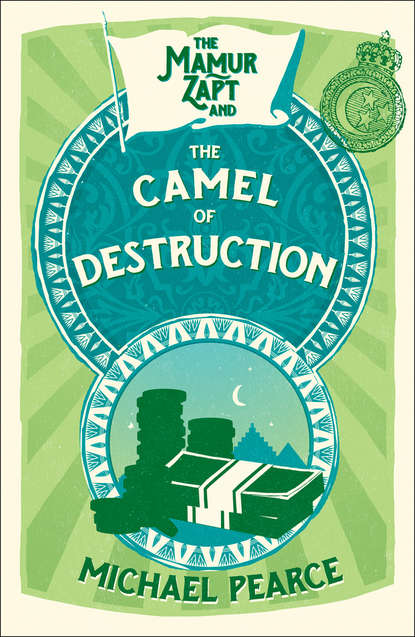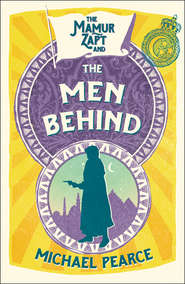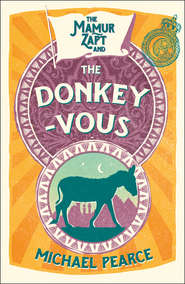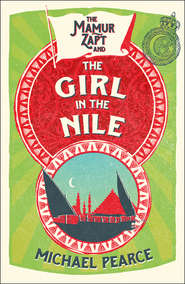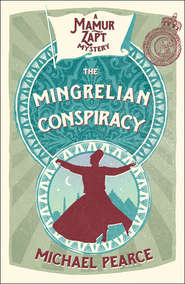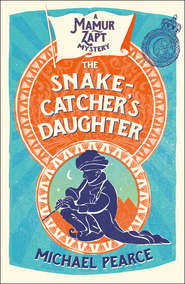По всем вопросам обращайтесь на: info@litportal.ru
(©) 2003-2024.
✖
The Mamur Zapt and the Camel of Destruction
Автор
Год написания книги
2019
Настройки чтения
Размер шрифта
Высота строк
Поля
They wrote to him about all sorts of things: the price of bread (risen a lot recently); which of the traders was giving short measure (all, but some more than others); the sexual habits of figures prominent in the city (entertaining and quite possibly accurate).
In among the grimy scraps of paper there were often brief, scribbled messages which were of great use to him in his secret service work.
These were the items to which he turned first: but the items he turned to second were the petitions, of which there were usually quite a lot. Many ordinary Cairenes, completely flummoxed by the Egyptian bureaucracy, which was of an Ottoman labyrinthineness, preferred to make use of the more personal mode of address which the Mamur Zapt’s box represented.
Owen insisted on handling all petitions himself. Often there was little he could do but he always made sure that, so far as they could be, issues raised were followed up. This was very popular with the ordinary folk of Cairo but less so with the bureaucracy, as Nikos, his Official Clerk, pointed out.
It was one of Nikos’s duties to empty the box every day and lay its contents on Owen’s desk. He did not like doing this as it meant going out of his office. He preferred to keep his distance from the hoi polloi.
That went for the contents of the box, too, which he was quite happy to leave to Owen to deal with. Occasionally, though, Owen needed his help; as this morning.
‘Read this. I can’t make head nor tail of it. If it’s a dowry, I don’t want anything to do with it.’
‘It’s not a dowry,’ said Nikos. ‘It’s a waqf.’
A waqf was, Owen knew, a religious bequest or endowment. And that was nearly all he knew about it, except that the waqf fell under Islamic law (and was therefore nothing to do with him) and was extremely complicated.
‘I still don’t want anything to do with it.’
Waqfs were quite common. They were a traditional legal arrangement for the giving of alms. A waqf was an assignment in perpetuity of the income from a piece of property for charitable purposes, the upkeep of houses for the poor, for example, or the maintenance of mosques or hospitals or schools.
It could also, however, be used for the benefit of the founder’s family. The founder could provide for a salary to be paid to a member of his family to act as administrator or stipulate that surplus income be given to his descendants as long as they survived.
Such a system was, of course, open to abuse and over the centuries most possibilities for abuse had been thoroughly explored. From very early days it had been necessary to regulate the system and now, such was the number and scale of waqfs, that task was undertaken by an entire Ministry, the Ministry for Religious Endowments.
‘Not for me,’ said Owen firmly.
‘I will tell you about it,’ said Nikos, disregarding him.
‘It’s from a woman, whose husband benefited for many years from a waqf. He was a schoolteacher and ran a kuttub for small children. It had been in his family for generations. Anyway, he died and she expected the benefit to pass to their son. It didn’t.’
‘I thought these things went on forever?’
‘So did she. Apparently, though, someone invoked a clause she’d never heard of whereby on the death of her husband the benefit passed to a distant male relative. The relative turned out to be senile and was, she says, tricked into selling the benefit to a rich man who now wants to kick her out.’
‘I don’t think I can handle this. I’ll put her on to somebody in the Ministry.’
‘She’s already tried them.’
‘Well – all right, give me the letter. I’ll think about it.’
‘There’s just one other thing. She says several other people in the neighbourhood have recently lost their benefits in a similar way.’
‘The same man?’
‘She doesn’t say.’ Nikos handed back the letter. ‘It would be easy to find out. A walk round the neighbourhood. But, then, that’s something you like doing, isn’t it?’
The phone rang. It was Paul.
‘Gareth, the Old Man would like you to take a look at something.’
‘Yes?’
‘A man died in one of the offices last night.’
‘Yes, I think I heard someone say something about it in the bar.’
‘Did you, now? It’s certainly got around.’
‘What’s special about it?’
Owen, as Mamur Zapt, or what in England would be known as Head of the Political Branch, did not reckon to concern himself with routine crime, if this was a crime.
‘We don’t know there is anything special about it. It’s just that there’s been a reaction to it. A political reaction.’
‘Ah! Well, isn’t that something for you to bother yourself about, not me? I mean, if it’s just a heart attack–’
‘They’re saying it isn’t.’
‘Who are they?’
‘Ali Maher, Abdul Filmi, Al-Nukrashi. And others.’
Owen could understand now. The names were those of prominent politicians. Only one formally belonged to the new Nationalist Party but the others were Nationalist in sympathy and always ready to make the most of any issue which might embarrass the Government.
‘But surely the post-mortem–’
‘There isn’t going to be one. Unless someone says otherwise. A doctor has signed the certificate in the normal way. Natural causes.’
‘They why–’
‘Ali Maher says it’s a fix.’
‘What do the family say?’
‘They want to get on with it. You’ll have to move fast. The body’s being buried this evening.’
That was not unusual. Speed was necessary in the heat.
‘You want me to order a post-mortem?’
Paul hesitated.
‘I want you to take a look at things. Order one only if you think it’s really necessary. We don’t want this to get bigger than it needs to. That would be playing into Ali Maher’s hands.’
Owen, representing the British Administration, went to give his condolences. The family were surprised – they had always known Osman Fingari to be important but hadn’t realized he was that important – but flattered.
‘We knew he’d been doing well in the last year, of course.’





